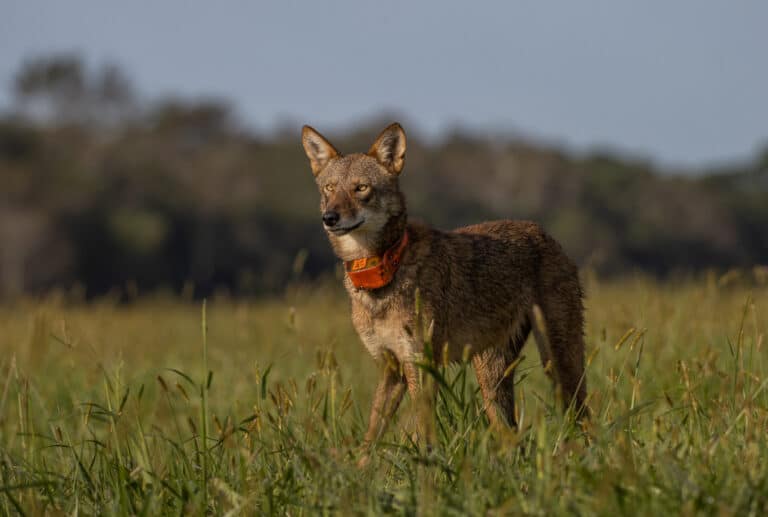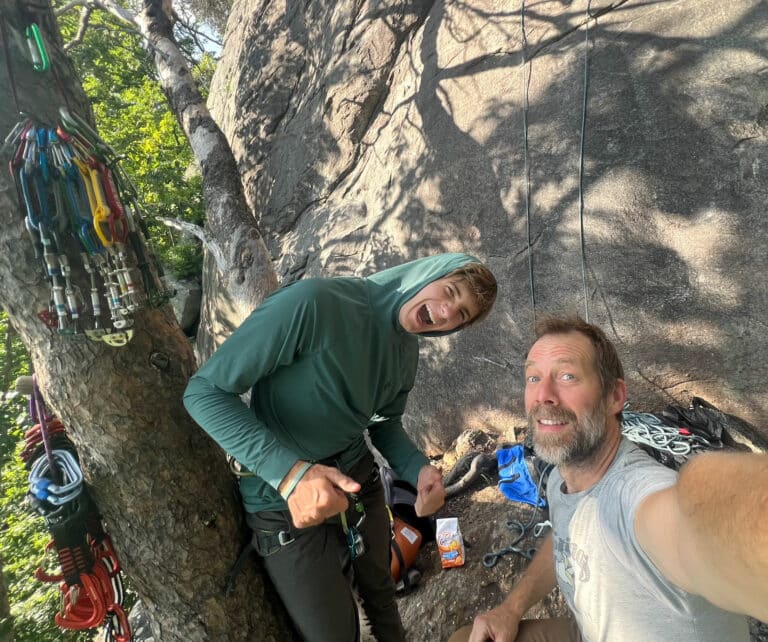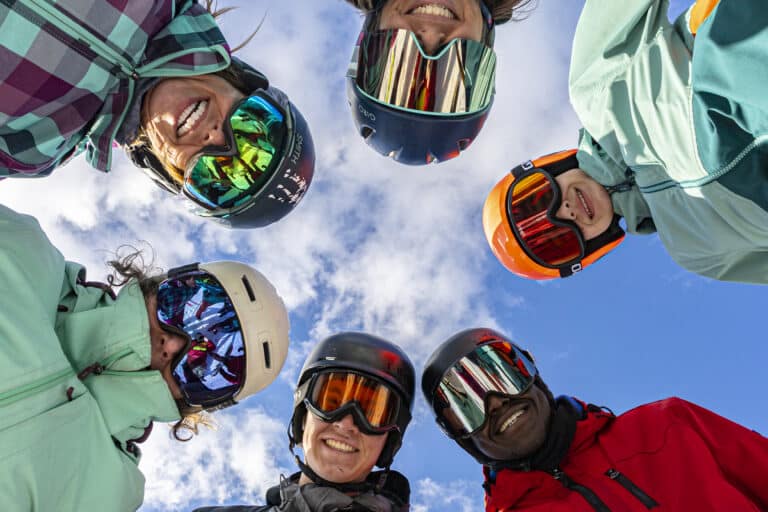by Jill Moore
<P>
I flipped open my cell phone. “Hey Ted, what’s up?”
“The North Fork of the French Broad’s running, want me to come pick you up?”
What luck! A bluebird Saturday morning, good friends, a great stream on a no-drytop day with highs in the 70s expected…
“No, I better not,” I told him. “I’m just not feeling it today.”
I wished them a good trip, we said our goodbyes, and I closed the phone. Then I sat on the couch and cried because I was too afraid to paddle one of my favorite rivers.
That was last summer. I was perfectly capable of running the North Fork and I had, in fact, asked Ted to call me if it ran. A picturesque creek that intersects highway 64 just east of Brevard, NC, the North Fork’s steep first half comprises several fun, unique rapids, dropping around 120 feet per mile. Still, at that water level, it was Class IV drop-pool and well within my skill set.
That men and women relate to sports differently is hardly a revelation to those who trek, trip or train with the opposite gender, but the principle is especially true of whitewater. Let’s not kid ourselves – until people grow gills, aquatic sports will remain inherently dangerous despite a low statistic for deaths on rivers. This fact informs every paddler’s decisions, and when there is potential for danger to oneself, women are more apt to refrain from risky behaviors than men. Whereas men become energized by the possibility of having a shoulder ripped out of joint or taking a shot to the noggin, women merely become frightened. As Ted put it, “Women seem to have a much better sense of self-preservation than men.”
In the last couple of years, I’ve dealt with fear by simply paddling far below my ability, a strategy which soon made for boring boating. So I asked a few friends what they do when they know misjudgment will precipitate a beat-down. One uses deep breathing to focus his mind. Another said she pukes now and then but, after that, she’ll have a great day on the river! A third subscribes to the Just Do It philosophy. “Don’t screw up,” he said. “And if you do screw up, you’re gonna have to deal with some consequences.” It’s that dealing with consequences part I’ve had a hard time warming up to.
A few weeks ago, I ran Lower Big Creek for the first time, at a high level. The physicality of the pushy water had my heart rate up within 200 feet of the put-in. However, the nervousness I felt at water’s edge soon dissipated as I made my way downstream, picking lines on the fly while the flow rushed me toward the confluence with the Pigeon River. Lower Big Creek is my favorite kind of whitewater – no big drops; you go from point A to point B constantly maneuvering around obstacles such as rocks, hydraulics and the occasional downed tree. I paddled, I got completely airborne on a sweet boof, I took an inadvertent surf in a sticky little hole near the end, I wore a perma-grin at the takeout. I had no fear.
As I waited for my friends to finish a second lap, I savored the fact that my head is finally coming back to a place where my confidence is appropriate for my ability. In a town full world-class creekboaters, Lower Big Creek seems like a blip on the whitewater radar, but to me it represents my redemption. I’m a kayaker again, and that puts an even wider grin on my face than Big Creek did.







